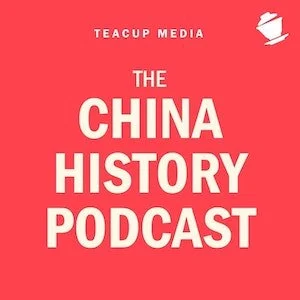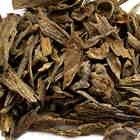Ep. 282 | The Taiping Rebellion (Part 3)
After seizing the all-important city of Nanjing in March 1853 and basking in the afterglow of this victory, the Taiping leadership launches two military expeditions, one to the north to capture the capital, Beijing, and the other to the west. In this episode, we'll see how those two ventures pan out.
Then in 1856, comes the first major political crisis that happens at the very top of the Taiping Heavenly Kingdom leadership. Meanwhile, the foreign powers operating in China, namely Britain and France, scheme to make the best of the Qing Dynasty's bad situation.
As always, the terms from the episode are listed below, or available to download!
Listen On Your Favorite Podcast Player
Terms in Episode
| Pinyin/Term | Chinese | English/Meaning |
|---|---|---|
| Nánjīng | 南京 | Capital of Jiangsu Province. Also capital of the Taiping Heavenly Kingdom |
| Zhènjiāng | 镇江 | City in Jiangsu Province |
| Yángzhōu | 扬州 | City in Jiangsu Province |
| Tāizhōu | 台州 | City in Jiangsu Province |
| Chángzhōu | 常州 | City in Jiangsu Province |
| Wúxī | 无锡 | City in Jiangsu Province |
| Sūzhōu | 苏州 | City in Jiangsu Province |
| Nántōng | 南通 | City in Jiangsu Province |
| Hóng Xiùquán | 洪秀全 | 1814-1864, Chinese revolutionary and leader of the Taiping Rebellion. Claimed to be God's son and the younger brother of Jesus Christ |
| Hakka | 客家 | Hakka, a Han Chinese subgroup whose ancestral homes are chiefly in the Hakka-speaking provincial areas of Guangdong, Fujian, Jiangxi, Guangxi, Sichuan, Hunan, Zhejiang, Taiwan, Hainan and Guizhou |
| Miáo | 苗族 | a group of linguistically-related peoples living in Southern China and Southeast Asia, which are recognized by the government of China as one of the 56 official ethnic groups. The Miao live primarily in southern China's mountains, in the provinces of Guizhou, Yunnan, Sichuan, Hubei, Hunan, Guangxi, Guangdong and Hainan |
| Zhuàng | 壮族 | |
| Xiàng Róng | 向荣 | 1801-1856, a Chinese military general and politician |
| Qíshàn | 岐山 | 1786-1854, Mongol noble and official of the late Qing dynasty, best known for negotiating the Convention of Chuanbi on behalf of the Qing government with the British during the First Opium War of 1839–42 |
| Guǎngdōng | 广东 | Province in southernmost China |
| Guǎngxī | 广西 | Province in southwest China just west of Guangdong |
| Húnán | 湖南 | Province in south-central China, north of Guangdong |
| Húběi | 湖北 | Province in central China north of Hunan |
| Jiāngsū | 江苏 | Coastal province, north of Zhejiang |
| Jiāngxī | 江西 | Province in China located just west of Fujian |
| Yáng Xiùqīng | 杨秀清 | 1821-1856, The Eastern King of the Taiping Heavenly Kingdom. He had a direct pipeline to the Lord God |
| Zhèngzhōu | 郑州 | Capital city in Henan Province |
| Qìnyáng | 沁阳 | City just north of Zhengzhou on the other side of the Yellow River, formerly called Huaiqing |
| Huáiqìng | 怀庆 | The former name of Qinyang City in Henan Province |
| Zhílì province | 直隶省 | The former name of Hebei Province |
| Tiānjìn | 天津 | Major city just southeast of Beijing |
| Qīng | 清朝 | Final dynasty in Chinese imperial history 1644-1911 |
| Sengge Rinchen | 僧格林沁 | 1811-1865, Qing Mongol nobleman and general who served the dynasty brilliantly in a number of battles during the Second Opium War and the Taiping and Nian Rebellions. |
| Lǐ Kāifāng | 李开芳 | 1826-1855, Taiping military leader from the early days who won many battles but met his Waterloo during the Northern Expedition and was later captured and executed by the Qing authorities |
| Niǎn Rebellion | 捻乱 | an armed uprising that took place in northern China from 1851 to 1868, contemporaneously with Taiping Rebellion (1851–1864) in South China. The rebellion failed to topple the Qing dynasty, but caused immense economic devastation and loss of life that became major long-term factors in the collapse of the Qing regime in the early 20th century. |
| Jiāng Zhōngyuán | 江忠源 | 1812-1854, a scholar and soldier from Hunan who fought for the Qing and against the Taiping Heavenly Kingdom during the Taiping Rebellion |
| Zēng Guófān | 曾国藩 | 1811-1872, Chinese statesman and military general of the late Qing dynasty. He is best known for raising and organizing the Xiang Army to aid the Qing military in suppressing the Taiping Rebellion and restoring the stability of the Qing Empire |
| Tiānjīng | 天京 | The city of Nanjing. It was renamed Tianjing after the Taiping Rebels took the city of Nanjing |
| Xiāngtán | 湘潭 | City in Hunan |
| Yuèzhōu | 岳州 | City in Hunan, today called Yueyang |
| Wǔhàn | 武汉 | Mega-city in Hubei province comprised of Hankou, Hanyang and Wuchang |
| Jiǔjiāng | 九江 | a prefecture-level city located on the southern shores of the Yangtze River in northwest Jiangxi Province |
| Lake Póyáng | 鄱阳湖 | Lake in northern Jiangxi Province, China's biggest if zI'm not mistaken. |
| Hóngwǔ emperor | 洪武帝 | Founder of the Ming Dynasty, known also as Zhu Yuanzhang |
| Qín Rìgāng | 秦日纲 | Guangxi Hakka who joined up with Hong Xiuquan early and reported directly to Hong. |
| Wéi Chānghuī | 韦昌辉 | 1823-1856, the North King of the Taiping Heavenly Kingdom during the Taiping Rebellion |
| Shí Dákāi | 石达开 | 1831-1863, The Wing King of the Taiping Heavenly Kingdom. One of the five key leaders of the Taiping's. More of him in Part 3 |
| Battle of Jiāngnán | 一破江南大营 | Also referred to as "The First rout of the Jiangnan Army Group". Qing general Xiang Rong was able to lead his troops in an encirclement of the Taiping capital at Tianjing after it was seized in battle by the Taipings. The outcome of this first of two battles led to a breakout by the Taiping army and the defeat of Xiang Rong's army. |
| Hakka-Punti Clan Wars | 土客械斗 | a conflict between the Hakka and Cantonese people in Guangdong, China between 1855 and 1867. The wars were fierce around the Pearl River Delta, especially in Toi Shan of the Sze Yup counties. The wars resulted in roughly a million dead with many more fleeing for their lives |
| Shùnzhì | 顺治帝 | First Qing emperor to rule in Beijing, reigned 1643-1661 |
| Kāngxī | 康熙帝 | Son of Shunzhi Emperor, reigned 1661-1722 |
| Zhèjiāng | 浙江 | Coastal province in China |
| Hóng Rénfā | 洪仁发 | Hong Xiuquan's eldest brother |
| Hóng Réndá | 洪仁大 | Hong Xiuquan's second-eldest brother |
| Hóng Xuānjiāo | 洪宣娇 | Also referred to as Yáng Xuānjiāo. Alleged sister (or perhaps "daughter" of Hong Xiuquan. A legendary martial artist and military leader who led a Taiping women's army |
| Xiāo Cháoguì | 萧朝贵 | 1820-1852, The Eastern King of the Taiping Heavenly Kingdom. He had a direct pipeline to Jesus |
Resources
Books
God’s Chinese Son: The Taiping Heavenly Kingdom of Hong Xiuquan by Jonathan Spence
The Search for Modern China, 2nd Edition by Jonathan Spence
A History of Chinese Civilization by Jacques Gernet
Fall of Imperial China by Frederick Wakeman
The World of a Tiny Insect: A Memoir of the Taiping Rebellion and Its Aftermath by Zhang Daye

















his all took place in the final moments of the Warlord Era, right after the Central Plains War. This act perpetrated by warlord Sun Dianying 孙殿英 epitomized the venality of these men.